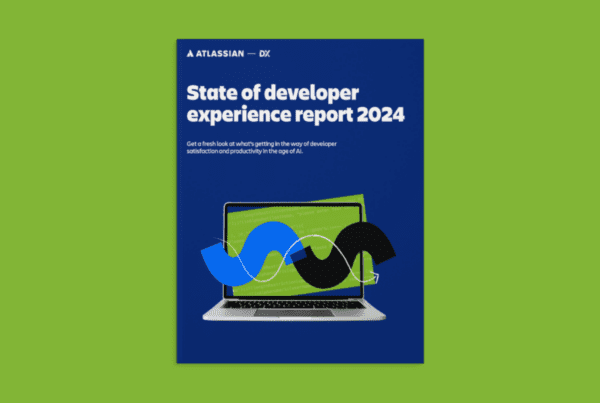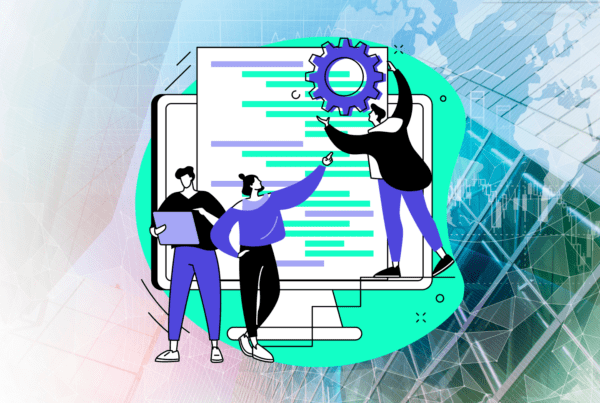Developer Experience (DevEx or DX) and Developer Relations (DevRel) are two crucial aspects of the tech industry that often intersect but serve distinct purposes. We see them being used interchangeably which can lead to some confusion. In this article, we will explore some of the similarities and differences between DevEx and DevRel, drawing on insights from those we speak to, talks we attend and online resources.
Developer Experience (DevEx)
In its simplest terms, DevEx refers to the overall impression (positive/negative thoughts, feelings, responses etc.) that developers have when using a software or service, within an ecosystem [1]. It therefore not only encompasses the tools and technologies that developers have to use, but also the processes, working environment and culture involved in the software development team.
In an organisation with good DevEx, developers are satisfied with their work, and are happy. This leads to high levels of productivity and improved employee retention. If a company has a poor DevEx, it can have the reverse effect and lead to increased frustration, decreased motivation and higher cases of burnout.
As there are so many factors at play, it is a huge topic that continues to be explored by researchers to not only understand better, but also to better inform companies on way to measure and boost DevEx.
In summary, components of developer experience include:-
-
- Focus on Developers: DevEx is primarily centred on enhancing the experience of developers who use a company’s tools, APIs, or services. It aims to make their workflow more efficient and productive.
-
- Tools and Resources: DevEx provides developers with the necessary tools, documentation, libraries, and resources to succeed in their work. It’s about creating a seamless environment for coding.
-
- Quality of Documentation: High-quality documentation is a critical component of DevEx. It should be clear, comprehensive, up-to-date and easily accessible to help developers understand and use the technology effectively [2]. One of the biggest pain points for developers is encountering knowledge silos and spending valuable time to find answers to questions that another member of the team has already solved at some point.
-
- Strong Multi-faceted Support: It is important that developers have the support required in a number of different areas, this includes; community support with their peers to share ideas and collaborate on overcoming challenges together, technical support for the tools that they are required to use, and emotional support to discuss bottlenecks and personal issues that may arise that hinder their ability to work as effectively as they can.
If you’re interested in reading more we highly recommend “An Actionable Framework for Understanding and Improving Developer Experience” by Greiler, Storey and Noda., October 2021.
Developer Relations (DevRel)
Developer Relations (DevRel), on the other hand, is more about building relationships and communities around a company’s technology. It is a strategic practice that focuses on fostering mutually beneficial relationships between software development companies and their users (or potential users). It plays a crucial role in building a bridge of communication and collaboration between a company and its developer community.
In different companies however, the definition of DevRel can vary wildly, leading to a lack of clarity on what is expected of DevRel personnel, how to measure their performance and also huge confusion in the job market when it comes to DevRel professionals looking for new opportunities.
We have discussed in previous blog posts how, if aligned correctly within a software development company, the DevRel team can be the difference between failure and success.
Ben Gamble (currently DevRel Manager at Aiven) in his brilliant talk at DevRelCon London this year discussed the complexities surrounding this as DevRel is still ‘really young as a discipline’ and companies struggle with how to ensure that DevRel goals fit into alignment with the ‘bigger company goals’ and vice versa. You can view Ben’s talk and all the other great tracks from DevRelCon London 23 here.
In summary, here are the key points about Developer Relations:
-
- Mutual Benefits: DevRel aims to create a win-win situation for both developers and the company. Developers receive support, resources, and information to effectively use a company’s products and services, while the company gains valuable feedback, loyalty, and advocates within the developer community.
-
- Interdisciplinary Role: DevRel professionals often work at the intersection of product, engineering, and marketing. They act as liaisons, conveying developers’ needs and concerns back to the company while promoting the company’s offerings to developers.
-
- Platform Adoption: DevRel focuses on encouraging developers to adopt a company’s platform, APIs, tools, or technologies. This involves providing technical assistance, documentation, fun, and educational content. They also organize events, webinars, and meetups to connect with the developer community.
-
- Success Enablement: A primary goal of DevRel is to make developers successful in their initiatives. This includes assisting with problem-solving, offering best practices, and ensuring a smooth user experience. DevRel professionals act as advocates for developers, helping them get the most out of the technology hence the job title ‘Developer Advocate’ or ‘Developer Evangelist’ that you might also find on DevRel job descriptions.
Overlapping Areas
Both these fields are still being developed and redefined, and thus, as mentioned above they can mean different things to different people. The way we see it has been outlined in this article, as best as we can. Whilst they are different disciplines in regards to who they address (DevEx = internal developers / DevRel = external developers), the two can overlap and should in some areas.
-
- Shared Goals: Primarily and perhaps most obviously, DevRel teams are committed to improving DevEx for their customers. They represent a tool or platform that they believe will enhance the productivity of the members of the community in which they engage. In order to ensure this is done effectively, they have to create a feedback loop to the developer team so they can improve on the solution that they’re creating. Thus, they both share the same goal of providing the best level of service (and product) they can to the customer and drive greater brand awareness and adoption.
-
- Collaboration: Successful tech companies often foster collaboration between their DevEx and DevRel teams to ensure a holistic approach to developer satisfaction. For example, in the case of documentation, both teams collaborate closely to ensure that documentations align with developers’ needs and are as accurate and accessible as they can be. Furthermore, as covered previously, DevRel teams often sit in between other different parts of an organisation e.g. engineering and marketing, to help bridge the two together. Frustration can occur in both engineering and marketing teams when one doesn’t understand the other. Effective DevRel teams can act as the ‘translator’ here to ensure everyone is on the same page.
There are some great articles and podcasts on how companies can boost impact, productivity and output in their organizations by having DevEx and DevRel work together. Here are a couple:
We hope this article helps to define these two areas for your and also highlights the essential distinctions between Developer Experience (DevEx) and Developer Relations (DevRel), while also acknowledging that the two forces can combine. DevEx focuses on enhancing developers’ happiness and productivity whilst developing software and using the tools and going through the processes required to do so. While DevRel builds relationships and communities around a company’s technology to provide support and encourage uptake of the solution created. Although they have unique roles, both share the common goal of building a strong developer community (both internally and externally) and boosting adoption of the company’s solution.
Resources
[1] https://theworst.dev/developer-experience
[2] Medium – Developer Experience and Developer Relations: Key Strategies for Building a Strong Developer Community and Driving Adoption



